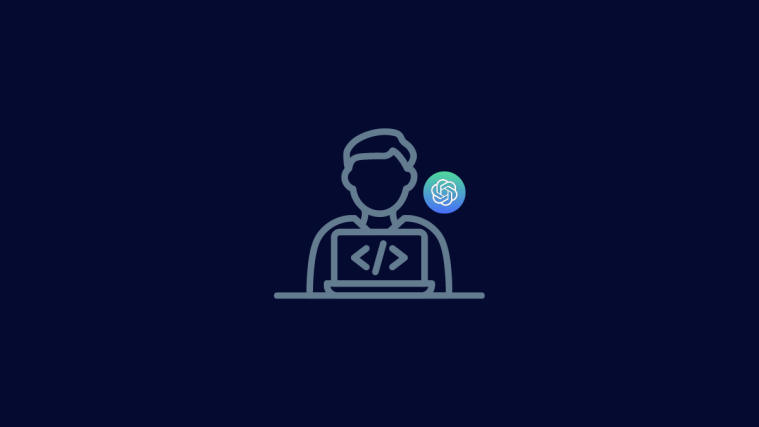What to know
- ChatGPT cannot yet replace programmers. But further developments may lead to widespread AI use and job loss for coders, programmers, and software engineers.
- As a student, one can continue taking programming classes but it’s imperative to develop cognitive, problem-solving, and creative skills, too.
- AI might replace some coding jobs for sure but new opportunities will also arise.
New forms of technology engender awe and wonder in us, followed quickly by denial and fear for one’s bread and butter. That is humanity in a nutshell. Cars replaced horses, telephones replaced messenger boys, and the printing press brought down the French monarchy. Disrupting the status quo is just the sort of thing that makes transformative technologies, well… transformative.
This article discusses the threat of ChatGPT and similar AI technologies to programmers, coders, and software engineers, how bad is it, how bad could it get, and what are some things that current and future programmers can do to buttress against the AI tsunami that’s on the horizon.
Related: How to Talk to ChatGPT
Will ChatGPT replace programmers?
AI is the next big technological revolution, and standing on the cusp is vertigo-inducing. Anyone trying to hide the very real dangers that AI poses to the workers of the world by claiming that AI isn’t there yet, or that it won’t happen for another decade, is simply blowing smoke up your face. Technologies advance at rapid rates, and if you’re not ready, you may get left behind. Just ask Google.
Everyone from coders to writers, analysts, and designers is right to sweat in the seat of their pants to a potential AI overtake. But job loss isn’t expected to be homogenous across the board. Given the current state of AI (and what’s to come), it’s jobs in the tech industry that are at the most risk.
Though ChatGPT-like AI wasn’t designed to code necessarily, its data does include coding and programming language modules which is what makes it spit out codes on the fly. Yes, those codes may be bug-ridden, and yes, programming isn’t exactly ChatGPT’s forte, yet. But its computational work and speed, and the fact that it’s set to grow at astronomical rates is not something that many of us can boast about.

It also doesn’t help to know that the coding-programming industry is the easiest to take over. Being completely digital and highly scalable once made it an in-demand vocation. But the same factors make it ripe for downfall. Soon, profit-driven companies will find that it’s cheaper and easier to work with one or two programmers than an entire team. In fact, this is already being done. OpenAI itself predicts that it will replace coders and software developers as the first of many professions to take the high road.
Related: How Is ChatGPT Able to Generate Human Like Responses and How Reliable Is It?
Should you continue taking programming and coding classes?
Though no one wants to find that the years of grueling education that they’ve gone through have come to naught, it’s possible that if one doesn’t start taking steps to become indispensable, they will eventually come to be dispensed with.
It’s been argued that the first few phases of AI development will have coders working alongside AI, and that there may even be an increase in job opportunities for programmers and software developers. But that is only for the next few years. All long-term predictions paint an uncertain picture.
Coders and programmers are not the most farsighted bunch among us, though they will need to be to survive the AI takeover. For the current time, if programming and coding is what you gravitate towards, discontinuing your classes for fear of AI is not going to solve any problems. In fact, it might end up being a self-fulfilling prophecy in the making.
You cannot beat new technologies out of a position of ignorance, nor can you spot errors and offer creative alternatives if you don’t know how AI is writing the code, how to solve its issues, and provide oversight for the evaluation and interpretation of the AI models. In short, continue taking programming and coding languages, and understand how AI is being used in your field.
Related: ChatGPT vs Bard: 5 Main Differences
How can you keep yourself prepared?
By the looks of it, creativity, decision-making, context-based problem-solving, and ethical understanding are still human niches. AI has to take giant strides toward developing broader, more general models that can understand the dynamic nature of changing situations and contexts.

But if your knowledge foundations are not strong, you may not even have a foot in the door, and these human attributes won’t even come to be in the picture. You will need more than your basic programming/coding skills to keep up with AI.
Related: 11 Ways to Use ChatGPT in Your Workflow
Specializations and Niche fields can help!
Improving your thinking and cognitive abilities, understanding business and client requirements, brainstorming and conceptualizing how software should work, and providing oversight to AI systems are all areas that you can continually work on. But having a few fortes or niches where your expertise is not easily challenged, and placing yourself in companies where they are most valuable, is going to make you an asset.
Specializations in AI, understanding a slew of programming languages, including TypeScript, Dart, Rust, Python 3, etc., and advanced algorithms can secure you for the foreseeable future. Some areas such as cybersecurity, risk analysis, and program development for training purposes will continue to remain under the human domain as well. The risks there may yet be too high for complete automation.
Related: 15 Coolest ChatGPT Prompts You Should Use Right Now!
The state of AI today (and what’s to come)
Generative AI like ChatGPT wasn’t born yesterday. It has emerged out of years and years of foundational work. Earlier forms of AI were already a big part of the algorithm-based content recommendation system on various social media platforms that managed to disrupt the political landscape and polarize societies in their wake. But generative AI might do more.
Because it has all the data and language modeling prowess to work with, its potential is bewildering and will continue to raise alarms in many fields. And it is popping up everywhere. In the short span of time that it’s been around, it’s already made coders shake in their boots, upended the world of education and academia, and even generated molecular data for thousands of drugs and agents (including the most lethal known to man, and then some).
Its rise is looking exponential, and soon everyone and their mothers will have daily interactions with AI, whether explicitly or implicitly. There’s already some pushback against generative AI with certain countries banning ChatGPT and open letters to pause further AI development being signed by notable people.
In the medium to long run, there might still be new jobs created in the programming world, but they are mostly going to be for oversight, evaluation, and troubleshooting. Creating hard code from scratch will surely not be in demand as it has been so far. The preponderance of AI will always tilt the balance in its favor, especially when it is able to compete with humans in tasks of varied natures.
An approximate timeline for AI takeover
We are currently in the early nascent stage of AI, characterized by generative AI that you can interact with and tell what to do, such as generating text, code, images, etc. The use of plugins and connecting AI to the internet will incentivize more companies to leverage its API. Loss of jobs may not be too apparent at this stage, and in fact, may even lead to job growth. But they will still be predicted in the coming times.
As AI gets better at coding/programming and its use proliferates throughout industries, the task of code generation will start to automate. Profit-driven companies adopting AI technologies will witness massive gains, and those that don’t will become obsolete. The need for regulation and oversight will improve the job prospect for those at middle to higher management levels. But jobs that involve basic coding will already be on the way out.
Anything beyond this will be harder to predict. The collective use of AI for hard coding may engender newer tools and databases that will further enable code migration and upgradation with a click, causing more and more job loss for the general programming masses. But what sort of new software and programming jobs will be created is up for speculation. Whatever it is, one can expect a complete AI takeover to occur following this phase.
Hope concludes…
There is much to fear for programmers in the coming years. But where new technologies take over large swathes of the market, they also unlock trapped potential and value and create new, better opportunities.
So, though the predictions look dismal, it does not mean that you shouldn’t continue developing your skills, be it technical, problem-solving, managerial, or creative, to land yourself in positions where you get to not just work alongside AI but also guide and oversee its usage.
RELATED







Say goodbye to privacy issues and say hello to global communication with ChatGPT! The Utopia P2P browser is equipped with this fantastic feature, allowing you to chat with confidence and without fear of prying eyes. ChatGPT is built into the Utopia P2P browser so you no have to register and pay for a subscription.